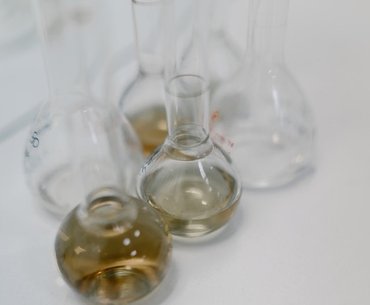On October 7, California Governor Newsom signed the California Food Safety Act into law, banning four food additives currently permitted in foods by the Food and Drug Administration.
Attorney Jeni Lamb Rogers discussed the watershed bill and current regulations around the ingredients during SFA’s Regulatory Update webinar titled “Food Ingredient Bans.”
The bill banned the following four food ingredients:
• Red dye no. 3
• Brominated vegetable oil
• Potassium Bromate
• Propylparaben
Lamb Rogers explained that the original bill included titanium dioxide, a colorant that is used to make food and drugs white. It is an additive that is widely used in candies and gum, and while not included in the final bill, is important because it is the most widely used of the ingredients and would likely affect some in the Specialty Food Association if included in future bans.
Shortly after California passed the bill, New York proposed a similar bill that included language around the ban on titanium dioxide.
Lamb Rogers shared that research around the use of these ingredients in food has suggested they are not safe for human consumption and could potentially lead to adverse health outcomes like cancer, reduced fertility, endocrine system disruption, and thyroid issues.
The FDA has already restricted the use of these ingredients in food to very low quantities that are considered “Generally Recognized as Safe.” For example, brominated vegetable oil, a stabilizer used in fruit-flavored beverages is only allowed by the FDA as no more than 15 parts per million of the beverages.
“What’s different about this ban is that it has removed certain ingredients that have long enjoyed GRAS status through…different processes,” she said, recounting the high-level framework of the three ways the Food and Drug Administration deems ingredients safe for consumption: considered GRAS before 1958; a committee that was formed after 1958 to affirm the safety of ingredients; and now the self-affirming GRAS check wherein companies using the ingredients present a dossier of research to prove the ingredient's safety.
This bill inspired the FDA to take a more proactive approach to evaluating food safety.
“The strategy outlined three main components: having expanded tools for safety assessment, updating the process to determine if safety should be reassessed, and monitoring the food supply to ensure chemicals are not present at a level that presents a risk to public health,” noted Lamb Rogers.
The FDA also followed up with the bill by sharing that the brominated vegetable oil, red dye no.3, and titanium dioxide are all up for consideration for the revocation of their GRAS status.
For companies selling food in California made with the ingredients, manufacturers will have until January 1, 2027, to change their ingredient labels or stop selling in the state to avoid paying fines.
In the video below, Lamb Rogers shares the bill's national impact and industry reception.
To learn more about the California Food Safety Act, watch the webinar on demand in the SFA Learning Center. Watch now.
Related: Charting a Course to Business Success; Amazon Sparks Controversy With Prime Big Deal Days

